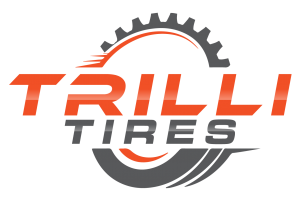Why Torquing Tires Matter
Torquing tires is a critical step in vehicle maintenance that ensures the wheels are securely fastened to the hub. Proper torque application prevents under-tightening, which can lead to wheel detachment, and over-tightening, which can cause damage to wheel studs and other components. Whether you drive a daily commuter or a high-performance vehicle, ensuring your wheels are torqued to the manufacturer’s specifications is essential for safety, longevity, and optimal driving performance.
What Torque Means in Automotive Terms
Torque refers to the rotational force applied to a fastener, in this case, lug nuts or wheel bolts. It is measured in pound-feet (lb-ft) or Newton-meters (Nm). Applying the correct torque ensures that the wheel remains properly secured while allowing for thermal expansion and contraction as the vehicle moves. Using a torque wrench is the most reliable way to achieve the precise force required.
The Risks of Improperly Torquing Tires
Failing to torque tires correctly can lead to various issues, including:
- Loose Wheels: Under-tightened lug nuts may loosen over time, leading to wheel vibrations or, in extreme cases, wheel detachment while driving.
- Warped Brake Rotors: Over-tightening can cause excessive pressure on brake components, leading to uneven braking performance.
- Damaged Wheel Studs: Applying too much torque can stretch or break wheel studs, making it difficult to secure the wheel properly in the future.
- Uneven Tire Wear: Incorrect torque can lead to improper wheel seating, causing misalignment and premature tire wear.
How to Properly Torque Tires
Torquing tires requires following a specific procedure to ensure accuracy. Here are the essential steps:
- Use a Torque Wrench: A properly calibrated torque wrench is necessary to apply the correct force.
- Follow Manufacturer Specifications: Check the vehicle’s manual or wheel manufacturer’s guidelines for the recommended torque values.
- Tighten in a Star Pattern: When tightening lug nuts, follow a star or crisscross pattern to ensure even pressure distribution.
- Use Clean Threads: Make sure wheel studs and lug nuts are clean and free of debris to prevent incorrect torque readings.
- Re-Torque After Driving: After approximately 50-100 km of driving, re-torque the lug nuts to confirm they remain properly secured.
The Role of Torque Wrenches in Precision Torquing
A torque wrench is a specialized tool designed to measure and apply a specific amount of force. Unlike impact wrenches or standard hand tools, torque wrenches allow precise tightening without overloading the fasteners. Common types include:
- Click-Type Torque Wrenches: Emit a click sound when the preset torque value is reached.
- Beam Torque Wrenches: Use a scale and pointer to indicate applied force.
- Digital Torque Wrenches: These provide an electronic reading and often include audible alerts.
Common Mistakes When Torquing Tires
Many vehicle owners make errors when torquing their tires, leading to potential safety risks. The most frequent mistakes include:
- Skipping Re-Torquing: Lug nuts can settle after initial installation, requiring a second check.
- Using an Impact Gun: While convenient, impact guns often apply excessive torque, which can damage components.
- Not Checking the Torque Wrench Calibration: Over time, torque wrenches may lose accuracy and should be recalibrated periodically.
- Ignoring Temperature Effects: Cold and hot conditions can affect metal expansion, impacting torque accuracy.
How Torquing Tires Affects Vehicle Performance
Beyond safety, properly torqued tires contribute to improved vehicle handling and efficiency. Unevenly torqued wheels can lead to:
- Steering Issues: If one wheel is not properly secured, it can cause pulling or vibrations while driving.
- Suspension Wear: Uneven torque can stress suspension components, leading to premature wear.
- Brake Efficiency: Unevenly torqued wheels can warp rotors, reducing braking performance and increasing stopping distances.
Why Professionals Should Torque Your Tires
While DIY maintenance is possible, having a professional torque your tires ensures precision and peace of mind. Experts use high-quality, calibrated torque wrenches and understand the nuances of different vehicle makes and models.
Final Thoughts
Torquing tires is an essential aspect of vehicle maintenance that should never be overlooked. Whether you’re installing new wheels or rotating your tires, ensuring proper torque application will enhance safety, prolong component life, and improve driving performance. For expert tire services, contact TrilliTires in Richmond Hill today!
